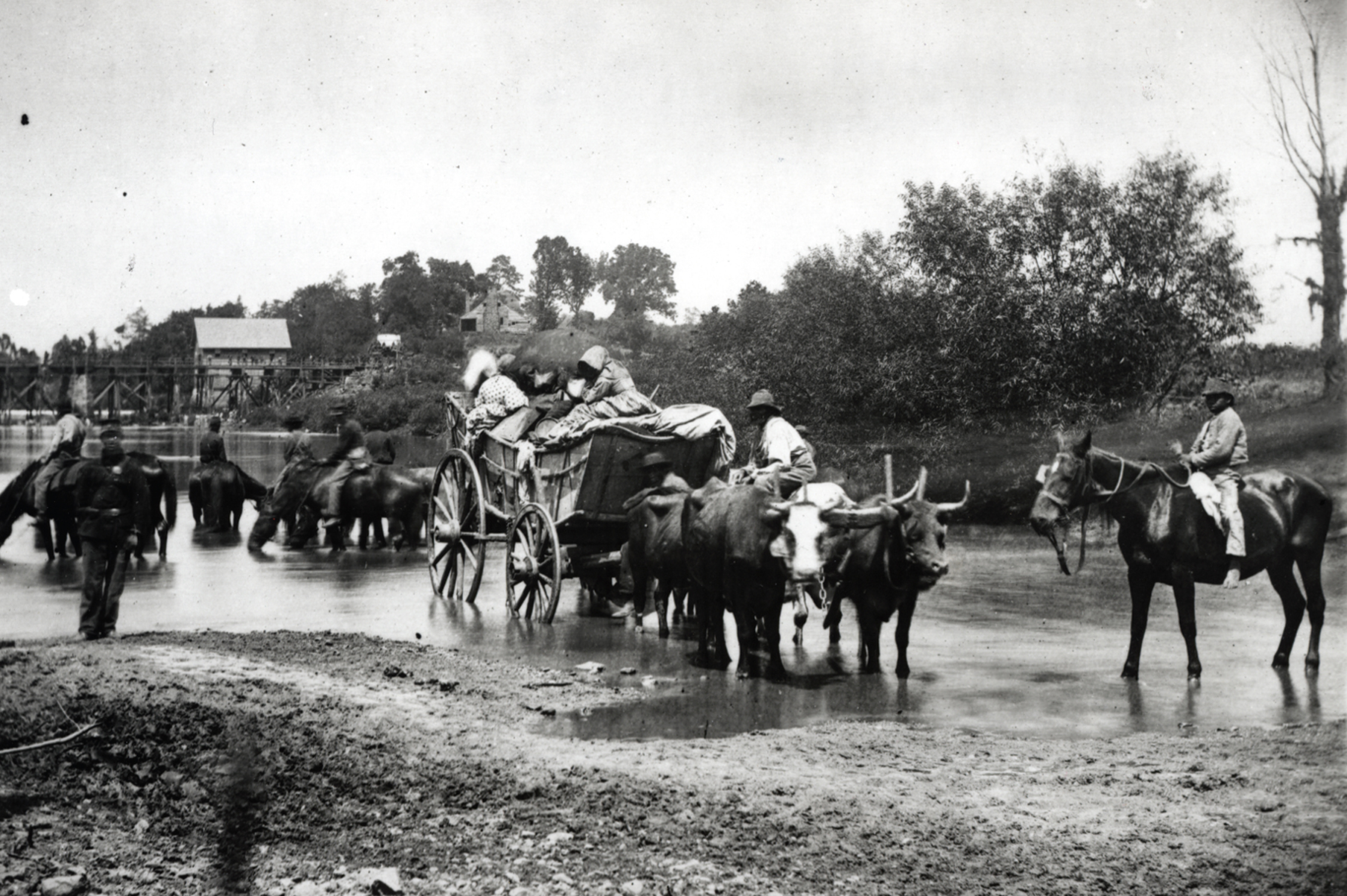The American Promise:
Printed Page 413
The American Promise Value
Edition: Printed Page 396
From Slaves to Contraband
Lincoln detested human bondage, but as president he felt compelled to act prudently in the interests of the Union. He doubted his right under the Constitution to tamper with the “domestic institutions” of any state, even states in rebellion. An astute politician, Lincoln worked within the tight limits of public opinion. The issue of black freedom was particularly explosive in the loyal border states, where slaveholders threatened to jump into the arms of the Confederacy at even the hint of emancipation.
Black freedom also raised alarms in the free states. The Democratic Party gave notice that adding emancipation to the goal of union would make the war strictly a Republican affair. Moreover, many white Northerners were not about to risk their lives to satisfy what they considered abolitionist “fanaticism.” “We Won’t Fight to Free the Nigger,” one popular banner read. They feared that emancipation would propel “two or three million semi-
Yet proponents of emancipation pressed Lincoln as relentlessly as did the anti-
The Republican-
Slaves, not politicians, became the most insistent force for emancipation. By escaping their masters by the tens of thousands and running away to Union lines, they forced slavery on the North’s wartime agenda. Runaways made Northerners answer a crucial question: Were the runaways now free, or were they still slaves who, according to the fugitive slave law, had to be returned to their masters? At first, Yankee military officers sent the fugitives back. But Union armies needed laborers, and at Fort Monroe, Virginia, General Benjamin F. Butler called runaways contraband of war, meaning “confiscated property,” and put them to work. Congress made Butler’s practice national policy in March 1862 when it forbade returning fugitive slaves to their masters. Slaves were still not legally free, but there was a tilt toward emancipation.

Lincoln’s policy of noninterference with slavery gradually crumbled. To calm Northerners’ racial fears, Lincoln offered colonization, the deportation of African Americans from the United States to Haiti, Panama, or elsewhere. In the summer of 1862, he told a delegation of black visitors that racial prejudice among whites made it impossible for blacks to achieve equality in the United States. One African American responded, “This is our country as much as it is yours, and we will not leave it.” Congress voted a small amount of money to underwrite colonization, but practical limitations and stiff black opposition sank the scheme.
While Lincoln was developing his own antislavery initiatives, he snuffed out actions that he believed would jeopardize northern unity. He was particularly alert to Union commanders who tried to dictate slavery policy from the field. In August 1861, when John C. Frémont, former Republican presidential nominee and now commander of federal troops in Missouri, freed the slaves belonging to Missouri rebels, Lincoln forced the general to revoke his edict. The following May, when General David Hunter freed the slaves in Georgia, South Carolina, and Florida, Lincoln countermanded his order. Events moved so rapidly, however, that Lincoln found it impossible to control federal policy on slavery.